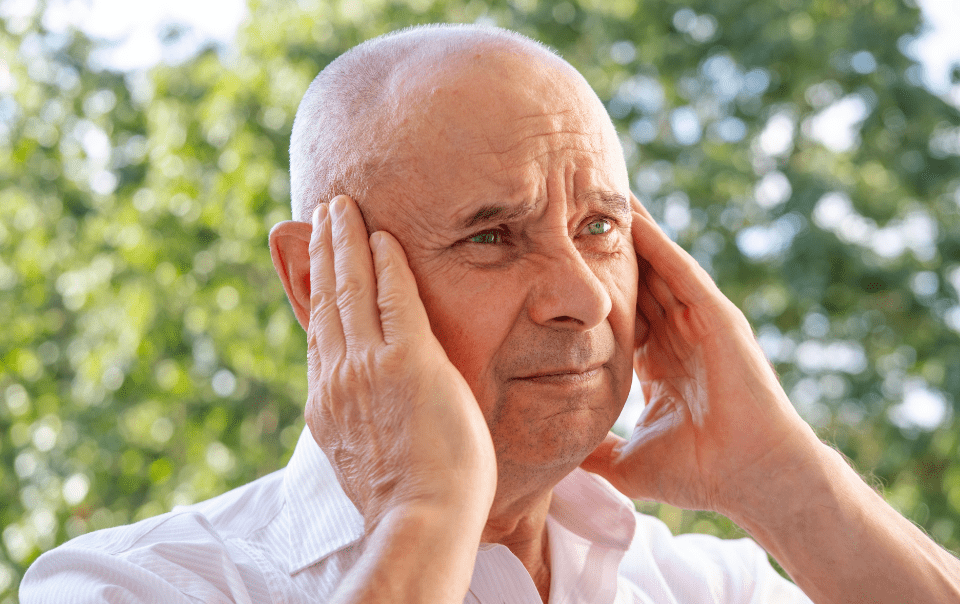Sinus pressure is a common issue that many people experience, often as a result of sinusitis or other related upper respiratory conditions. It’s important to see a sinus doctor in Los Angeles to learn the warning signs of sinus pressure and how to alleviate it. This article explores the causes of sinus pressure, its warning signs, and effective ways to find relief.
Understanding Sinus Pressure
Sinus pressure occurs when the tissues lining the sinuses become inflamed or swollen, leading to a buildup of mucus. The sinuses are air-filled cavities located in the forehead, cheeks, and behind the eyes. Their primary function is to produce mucus, which helps trap and remove bacteria, dust, and other particles from the air we breathe. Mucus cannot drain properly when the sinuses are blocked, leading to pressure and discomfort.
Several factors can lead to sinus pressure, including:
- Inflammation of the sinuses is often caused by a viral, bacterial, or fungal infection. Sinusitis can be acute (lasting for a short period) or chronic (lasting for several months or more).
- Allergic reactions to pollen, dust, pet dander, or other allergens can cause the sinuses to become inflamed, leading to pressure.
- A common cold or respiratory infection can cause the sinuses to swell and produce excess mucus, leading to pressure.
- These are noncancerous growths in the nasal passages or sinuses that can block airflow and drainage, resulting in pressure.
- A deviation in the nasal septum (the wall between the nostrils) can block one side of the nose, leading to sinus pressure on that side.
- Dry air, pollution, and exposure to smoke can irritate the sinuses and contribute to pressure.
Recognizing the warning signs of sinus pressure is essential for seeking timely treatment from a sinus doctor in Los Angeles to prevent complications. Some of the common symptoms include:
- Facial Pain and Pressure: Most often described as pain or a feeling of pressure in the forehead, cheeks, or around the eyes. This discomfort often gets worse when bending over or lying down.
- Headache: Head pain, particularly in the forehead region. These headaches often feel like a dull, throbbing pain that worsens in the morning or after waking up.
- Nasal Congestion: Congestion causing a blocked or stuffy nose can make it difficult to breathe through the nose and may be accompanied by a reduced sense of smell or taste.
- Postnasal Drip: Excess mucus produced by the sinuses can drain down the back of the throat, causing irritation and a persistent cough.
- Ear Pressure or Fullness: Sinus pressure can affect the ears, leading to a feeling of fullness or pressure in the ears. This may also cause temporary hearing loss or a ringing sensation in the ears.
- Fatigue: The discomfort and difficulty breathing associated with sinus pressure can lead to fatigue and a general feeling of being unwell.
- Fever: In cases of bacterial sinusitis, a fever may develop as the body tries to fight off the infection.
- Bad Breath: The buildup of mucus and bacteria in the sinuses can lead to bad breath, even with regular oral hygiene.
- Tooth Pain: The sinuses located above the upper teeth can cause referred pain in the teeth when inflamed.
When to Seek Medical Attention

- Severe or Persistent Symptoms: If your symptoms are severe, last for more than 10 days without improvement, or worsen after initially getting better, you should consult a healthcare provider.
- High Fever: A high fever (over 101.5°F or 38.6°C) along with sinus pressure may indicate a bacterial infection that requires antibiotics.
- Vision Problems: Blurred vision, double vision, or swelling around the eyes can be a sign of a serious complication and should be evaluated by a doctor immediately.
- Confusion or Changes in Mental Status: If you experience confusion, difficulty thinking clearly, or changes in mental status, seek emergency medical care, as these could be signs of a serious infection spreading to the brain.
- Swelling or Redness Around the Eyes: Inflammation or redness around the eyes, particularly if it is accompanied by severe pain, should be evaluated by a doctor as it could indicate orbital cellulitis, a serious infection that requires prompt treatment.
How to Get Relief from Sinus Pressure
There are several ways to relieve sinus pressure, ranging from home remedies to medical treatments. The appropriate approach depends on the underlying cause and severity of the symptoms.
Home Remedies
- Steam Inhalation: Breathing in steam can help to moisten the sinuses, loosen mucus, and reduce inflammation. You can do this by taking a hot shower, using a humidifier, or inhaling steam from a bowl of hot water with a towel over your head.
- Saline Nasal Spray: Saline sprays help to keep the nasal passages moist, reduce congestion, and promote mucus drainage. Over-the-counter saline sprays can be used several times a day.
- Neti Pot: A neti pot is a device used to irrigate the nasal passages with a saline solution. This can help to flush out mucus and allergens, providing relief from sinus pressure. It’s important to use distilled or sterilized water to avoid infection.
- Stay Hydrated: Drinking plenty of fluids helps to thin mucus, making it easier to drain from the sinuses. Water, herbal teas, and clear broths are good choices.
- Warm Compress: Applying a warm compress to the face can help to soothe the pain and reduce sinus pressure. Place a warm, damp towel over the forehead and nose for 10-15 minutes, several times a day.
- Rest and Relaxation: Rest is crucial for recovery, especially if your sinus pressure is due to a cold or infection. Elevating your head while sleeping can also help to promote sinus drainage and reduce pressure.
- Avoid Triggers: If allergies are the cause of your sinus pressure, try to avoid known triggers such as pollen, dust, or pet dander. Using an air purifier and keeping windows closed during high pollen seasons can also help.
Over-the-Counter Medications
- Decongestants: Over-the-counter decongestants, such as pseudoephedrine or phenylephrine, can help to reduce nasal congestion and relieve sinus pressure. However, these should be used with caution and not for more than a few days to avoid rebound congestion.
- Antihistamines: If your sinus pressure is related to allergies, antihistamines can help to reduce inflammation and relieve symptoms. Non-drowsy antihistamines like loratadine or cetirizine are commonly used.
- Pain Relievers: Over-the-counter pain relievers such as ibuprofen or acetaminophen can help alleviate the pain and discomfort associated with sinus pressure.
Medical Treatments
- Prescription Medications: If over-the-counter medications are ineffective, your doctor may prescribe stronger decongestants, antihistamines, or corticosteroids to reduce inflammation and relieve sinus pressure.
- Antibiotics: If a bacterial infection is the cause of your sinus pressure, your doctor may prescribe antibiotics to treat the infection. It’s important to take the full course of antibiotics as prescribed, even if symptoms improve before finishing the medication.
- Surgery: In cases of chronic sinusitis or when there are structural issues like nasal polyps or a deviated septum, surgery may be necessary to improve sinus drainage and relieve pressure. Procedures such as balloon sinuplasty or functional endoscopic sinus surgery (FESS) are commonly performed.
Conclusion
Sinus pressure is a common condition that can cause significant discomfort, but with the right approach, relief is often possible. By understanding the warning signs and knowing when to seek medical attention from a sinus doctor in Los Angeles, you can take steps to manage your symptoms effectively. Whether through home remedies, over-the-counter medications, or medical treatments, there are various options available to help alleviate sinus pressure and improve your quality of life.
Contact the Southern California Sinus Institute for an appointment.

